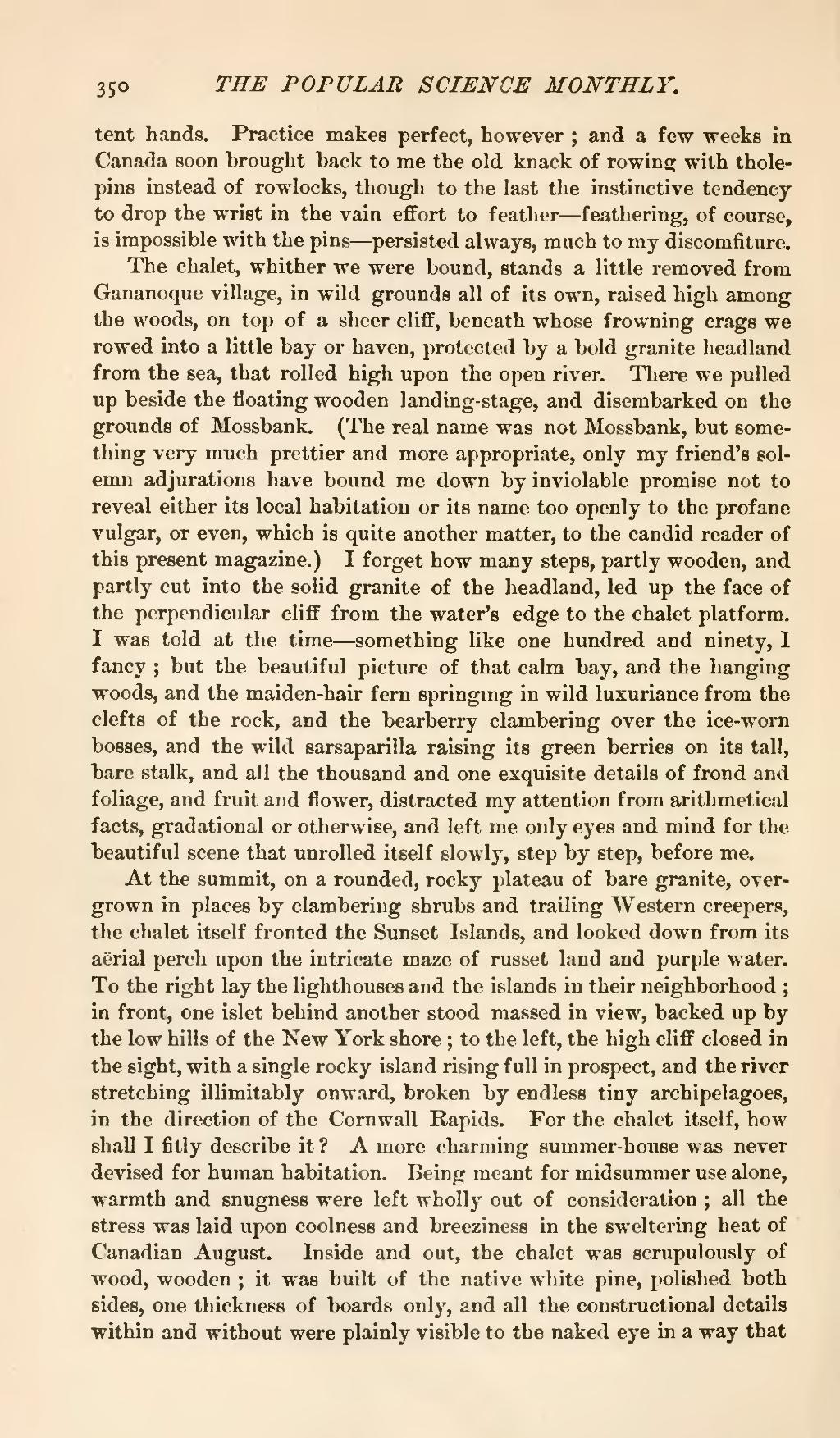tent hands. Practice makes perfect, however; and a few weeks in Canada soon brought back to me the old knack of rowing with thole-pins instead of rowlocks, though to the last the instinctive tendency to drop the wrist in the vain effort to feather—feathering, of course, is impossible with the pins—persisted always, much to my discomfiture.
The chalet, whither we were bound, stands a little removed from Gananoque village, in wild grounds all of its own, raised high among the woods, on top of a sheer cliff, beneath whose frowning crags we rowed into a little bay or haven, protected by a bold granite headland from the sea, that rolled high upon the open river. There we pulled up beside the floating wooden landing-stage, and disembarked on the grounds of Mossbank. (The real name was not Mossbank, but something very much prettier and more appropriate, only my friend's solemn adjurations have bound me down by inviolable promise not to reveal either its local habitation or its name too openly to the profane vulgar, or even, which is quite another matter, to the candid reader of this present magazine.) I forget how many steps, partly wooden, and partly cut into the solid granite of the headland, led up the face of the perpendicular cliff from the water's edge to the chalet platform. I was told at the time—something like one hundred and ninety, I fancy; but the beautiful picture of that calm bay, and the hanging woods, and the maiden-hair fern springing in wild luxuriance from the clefts of the rock, and the bearberry clambering over the ice-worn bosses, and the wild sarsaparilla raising its green berries on its tall, bare stalk, and all the thousand and one exquisite details of frond and foliage, and fruit and flower, distracted my attention from arithmetical facts, gradational or otherwise, and left me only eyes and mind for the beautiful scene that unrolled itself slowly, step by step, before me.
At the summit, on a rounded, rocky plateau of bare granite, overgrown in places by clambering shrubs and trailing Western creepers, the chalet itself fronted the Sunset Islands, and looked down from its aerial perch upon the intricate maze of russet land and purple water. To the right lay the lighthouses and the islands in their neighborhood; in front, one islet behind another stood massed in view, backed up by the low hills of the New York shore; to the left, the high cliff closed in the sight, with a single rocky island rising full in prospect, and the river stretching inimitably onward, broken by endless tiny archipelagoes, in the direction of the Cornwall Rapids. For the chalet itself, how shall I fitly describe it? A more charming summer-house was never devised for human habitation. Being meant for midsummer use alone, warmth and snugness were left wholly out of consideration; all the stress was laid upon coolness and breeziness in the sweltering heat of Canadian August. Inside and out, the chalet was scrupulously of wood, wooden; it was built of the native white pine, polished both sides, one thickness of boards only, and all the constructional details within and without were plainly visible to the naked eye in a way that
